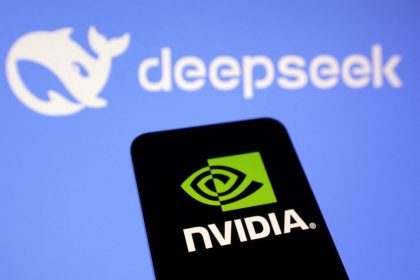Hannah, a student who was under a lot of pressure to complete her homework on time, told the BBC: “I had to hand in two projects in a short period of time and I felt very anxious. “I was really fighting against time and my brain had completely given up.”
Hannah says she turned to artificial intelligence to help her write one of her essays; Hannah, as we know her nickname, is now warning others about the potential consequences of using artificial intelligence to cheat in college. His use of artificial intelligence in doing his homework has caused disciplinary problems, based on which there is a possibility of expelling the student from the university; Hanna’s case highlights the challenge universities face: “Encouraging full exposure to AI while not using it for academic projects!”
Hannah’s abuse of AI was discovered when her professor was reviewing students’ essays using the software.
Hannah received a zero grade as a result of the review and then received an email stating that “it appears that academic misconduct has occurred.”
“At first I thought I should just deny it,” Hanna added, “but then I realized that during the investigation, the role of artificial intelligence in the project was very high, and I only lasted three minutes before I confessed and said that from “I used artificial intelligence to help finish the project.”
However, despite Hannah admitting to using AI to complete the project, she was acquitted by a jury due to insufficient evidence. Hanna said she thought it was a slap in the face and that other students should have received this serious warning.
“They could have kicked me out,” he said. Hana continued: “I deeply regret my choice; In my educational path, I always tried to get high grades, and maintaining these grades put me under pressure, and that’s how I decided to use artificial intelligence.”
What is artificial intelligence?
Artificial intelligence is the generation of technology that enables a computer to think or act in a human-like manner; It does this by taking in information from its surroundings and choosing the best response based on what it learns. Universities have tried to understand what AI programs are capable of in order to provide guidance on how to use them.
Some universities prohibit the use of AI unless specifically authorized by the student, while others allow the use of AI entirely.
Another student, Taylor, told the BBC about the use of artificial intelligence: “You have to embrace it. You can ask it questions and it will help you. You can use it to create a guide to the structure of your work. It is also good for exam preparation.”
However, another student was completely against the use of artificial intelligence, he said in this regard: “My classmates have repeatedly admitted that they use artificial intelligence in completing projects, and one of them even said that he read an article from Chat has received the GPT and copied and pasted it completely; “I’m upset that these people might get a higher grade than me.”
Universities are aware of the possible risks posed by artificial intelligence tools in the field of exams and evaluation; All universities have codes of conduct that include severe penalties for students who submit work that is not their own.
Generative AI has great potential to transform the higher education sector and provide exciting opportunities for growth; However, its integration into teaching, learning and assessment needs careful consideration.
RCO NEWS














